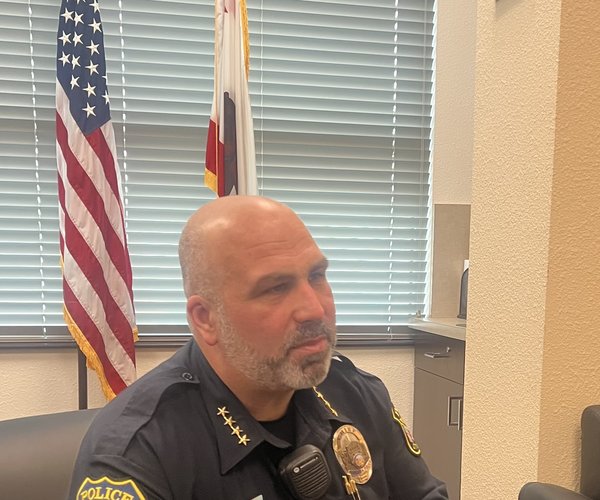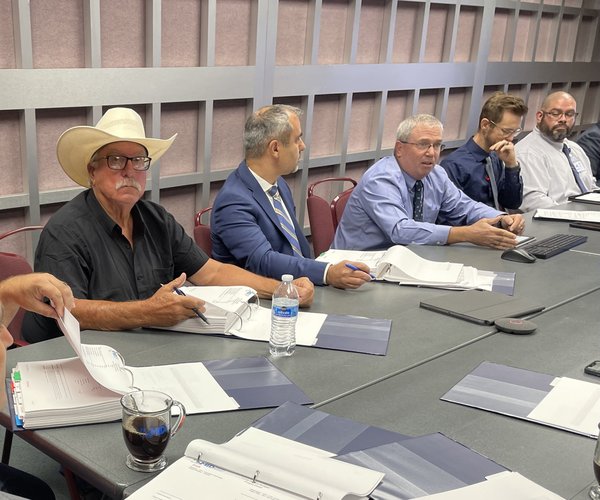It’s a modern-day gold rush in California, as jewelers across the state wave “buying gold” signs on street corners.The craze, brought on by all-time high prices for gold as investors seek a safe haven for money in a volatile stock market, has seen people across the Valley selling gold items to make some extra money. But just as the 1849 gold rush brought myriad problems along with it – lawlessness, disease, and addictions – the 2010 gold rush has its own issues.According to local jewelers and the Turlock Police Department, increasing theft rates and a growing number of unlawful gold-buyers has raised the stakes for certified gold-buying businesses. “The frustrating part of the gold-buying business is that you can’t compete dollar for dollar with people that aren’t following the law,” said Alta Fernandes of Vail Creek Jewelry Designs. “Sales yards, mail gold, and TV advertisers from out of state aren’t complying with local laws. Most people don’t understand and don’t really know if they are supporting their local community.” Mike Langston, Turlock Police Department Field Operations captain, said that the popular gold-buying business has undoubtedly been linked to increased crime rates in Turlock.“What happened in Turlock was that in working our crime statistics, we noticed that our thefts were on the rise and we were trying to determine the cause,” Langston said. “At that time we became aware that there are many businesses that were either not licensed or weren’t reporting to the police department to ensure that they were complying with the police and state.”Each city police department handles jewelry theft in similar ways, but there is still some debate as to whether the system is effective.According to certain jewelers, the system used to identify and report criminals is “archaic” and inconvenient. Langston disagrees, saying that the police handle cases of jewelry theft just as they do with video and gaming stores that buy and sell used goods. “The reporting requirements are really for the benefit of the entire community,” Langston said. “We’ve had instances where stolen goods have been recognized and discovered, but it takes too much time if the jewelers don’t report in the correct way. Businesses who are lawful shouldn’t have anything to fear about reporting theft.”When a jeweler buys a piece of jewelry, they are required to fill out a piece of paperwork with a detailed description for each item being bought. Just recently jewelers were granted permission to put multiple pieces of jewelry on the same sheet of paper, saving them a great deal of money and time. “The paperwork added an enormous cost to business, and (the police) have only recovered about $2,000 worth of stolen jewelry,” Fernandes said. “Instead of helping, (the police) have driven the cost up tens-of-thousands of dollars.”Regardless of what form a jeweler uses, each sale or purchase must be accompanied by a state approved list of identifying information. When buyers purchase gold, they submit the completed form to the police department where it is matched against descriptions of stolen goods. Some business owners are frustrated that the police will not allow a snapshot of the jewelry by itself. “We still take photographs to have some peace of mind,” Fernandes said. “The police department was very nasty about it because we weren’t using their forms.”Langston said that the pictures can only be helpful if a completed form is attached to the photograph. “Our folks aren’t trained in the practice of taking pictures,” Langston said. “The pictures of the merchandise don’t really serve any purpose without the data description.”According to Fernandes, the current method not only takes a long time to practice but also allows thieves to escape uncharged. If someone comes into a jewelry store and describes their stolen goods, it is illegal for jewelers to buy gold that matches the description. Fernandes said this law actually assists thieves rather than hinder them. Since jewelers only record information – driver’s licenses, thumbprints, and photographs of the goods – for jewelry they purchase, buyers are left without information to identify criminals.“It is to your best interest to wait and come to us,” Fernandes said of victims of theft. “If I can buy your jewelry two to three weeks later from the criminal, then we can return it and call the police. Otherwise our hands are tied by the police. Let the system work for itself.”Langston, however, remarked that buyers have myriad options when faced with thieves. “There are a lot of different options,” Langston said. “Certainly they can call us while the person is there. They can refuse the jewelry and give us a description of the person and the vehicle. It’s all up to the comfort level of the jewelry store and we certainly don’t want anybody to be placed in a position of danger.”Langston concluded by saying that after a report is made, the police can notify other gold-buyers, increasing the likelihood of catching the suspect at his or her next stop.According to Fernandes, meeting state gold-buying license requirements is almost as difficult as reporting criminal behavior.The application process alone takes a considerable amount of time, requiring businesses to provide fingerprints and driver’s licenses, complete multiple forms, and undergo a police-run background check of each gold-buyer. The forms are run through the Department of Justice, where the state filters through criminal records to ensure that all buyers are honest.Fernandes said that gold-buyers must also pay hefty certification fees for each scale they possess. All scales must be calibrated and approved by the City of Turlock so that all legal gold-buyers base their sales on identical weights. The scales must be inspected by the Department of Agriculture before they are approved.Jewelry buyers are now required to have another sticker for each calibrated scale, but unlike the other sticker, this one can be attained by simply paying a fee. “Now the state has come out with another sticker, which just sends more money to the state,” Fernandes said. “Apparently (gold-buying) is a matter of how many hoops you have to jump through to stay legal.”While the sticker fees may be a hassle, Ed Yonan of Yonan’s Jewelers said the scales help to gain the trust of local customers. “(Selling gold) is a popular thing right now because of people seeing it on TV,” Yonan said. “Anyone in town would pay a lot more than these out-of-state companies. At least here we weigh it in front of you and you get to make the choice when offered a price. If people send it to a business in New York you have no control over it – you’re going to get a lot better price here.”Both jewelers agreed that the hassle of meeting state requirements is well worth it in the end, and that they are proud to serve their community. “We’ve used gold-buying to help our already established jewelry business – now we want to make our customers a part of our family,” Fernandes said. — Alex Cantatore attributed to this report.
The new gold rush
Local jewelers labor through reporting laws, scale certifications





